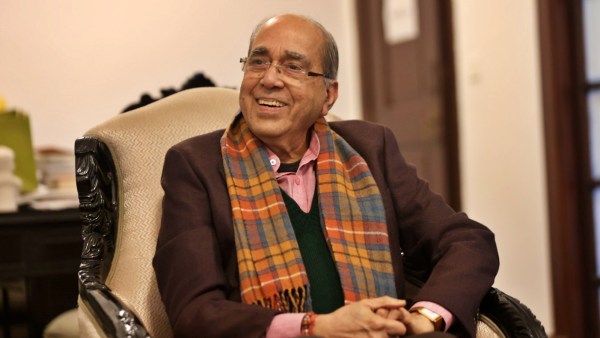New Delhi – As right-wing groups across India increasingly stake claims over mosques in various states, a surprising voice of restraint has emerged from none other than Nripendra Misra, the former Principal Secretary to Prime Minister Narendra Modi and current head of the Ram Temple Construction Committee.
In a recent interview with a leading English daily, Misra addressed the wave of temple claims triggered by the Ram Mandir movement, cautioning against attempts to rewrite history. “We cannot seek justice for the past. It has to be forgotten,” Misra said, urging society to move forward rather than reopen old wounds.
His comments came just two days after the grand consecration of the Ram idol in Ayodhya, an event hailed as a historic victory for the temple movement. Yet, Misra’s words struck a markedly different tone—one of reconciliation and redirection.
When asked about the recent controversy surrounding the Jama Masjid in Sambhal—where a court-ordered survey in November led to clashes between Muslims and police—Misra acknowledged the tensions but reiterated his belief that issues of the past should not dominate the present. “The Ram Temple verdict was accepted peacefully by all because it came from the Supreme Court. That chapter is over. People moved on with their lives. The past must not bind us,” he said.
On the rising number of claims to convert mosques into temples, Misra distanced the government from such actions, instead placing the onus on private individuals, community leaders, and other actors who are pursuing these agendas. “Everyone must realize that correcting history has its limits. Time lost does not return. We should focus on building a better future.”
He emphasized that India’s true priority should be development—not division. “Let us channel our energies into health, education, empowering rural women, and becoming a global economic power. Our growth rate is 7%. We’re on the verge of surpassing Japan to become the fourth-largest economy. But are we ensuring this growth benefits every citizen?”
Highlighting the difference between growth and inclusive progress, Misra questioned, “We might be the world’s largest milk producer, but is every child getting milk? The answer is no. So, instead of boasting numbers, we should ask—are our people truly benefitting?”
He listed his top priorities: healthcare, education, and rural women’s empowerment—calling them critical to the nation’s advancement.
As a seasoned bureaucrat and key figure behind the Ram Temple’s construction, Misra’s views carry weight. The big question is: Will radical Hindutva factions heed his advice and prioritize harmony over historical grievances? Will India choose unity and development over divisive agendas?
Only time will tell if Misra’s message resonates with those steering the nation’s sociopolitical discourse.




